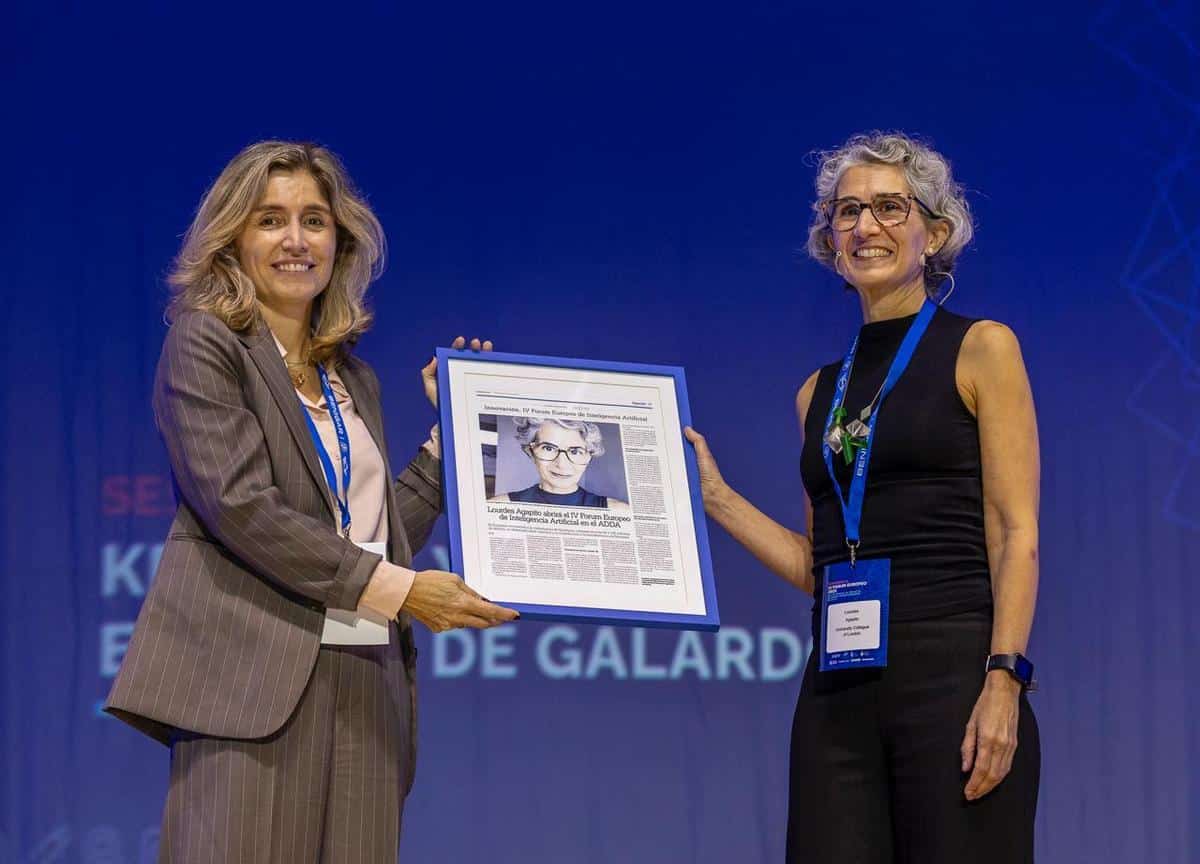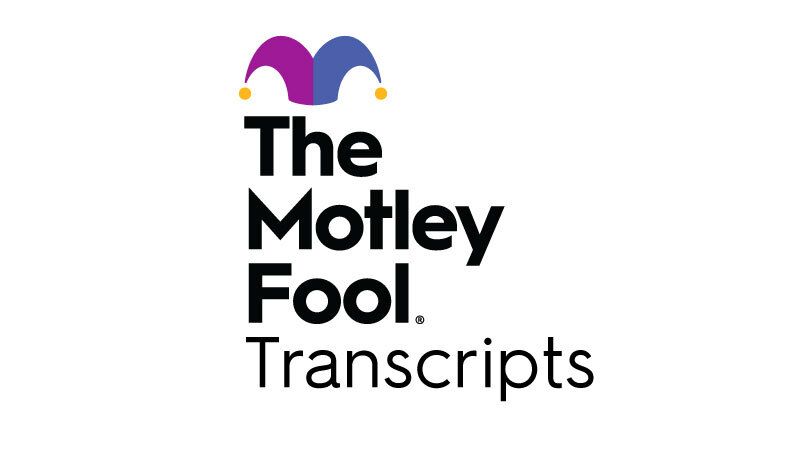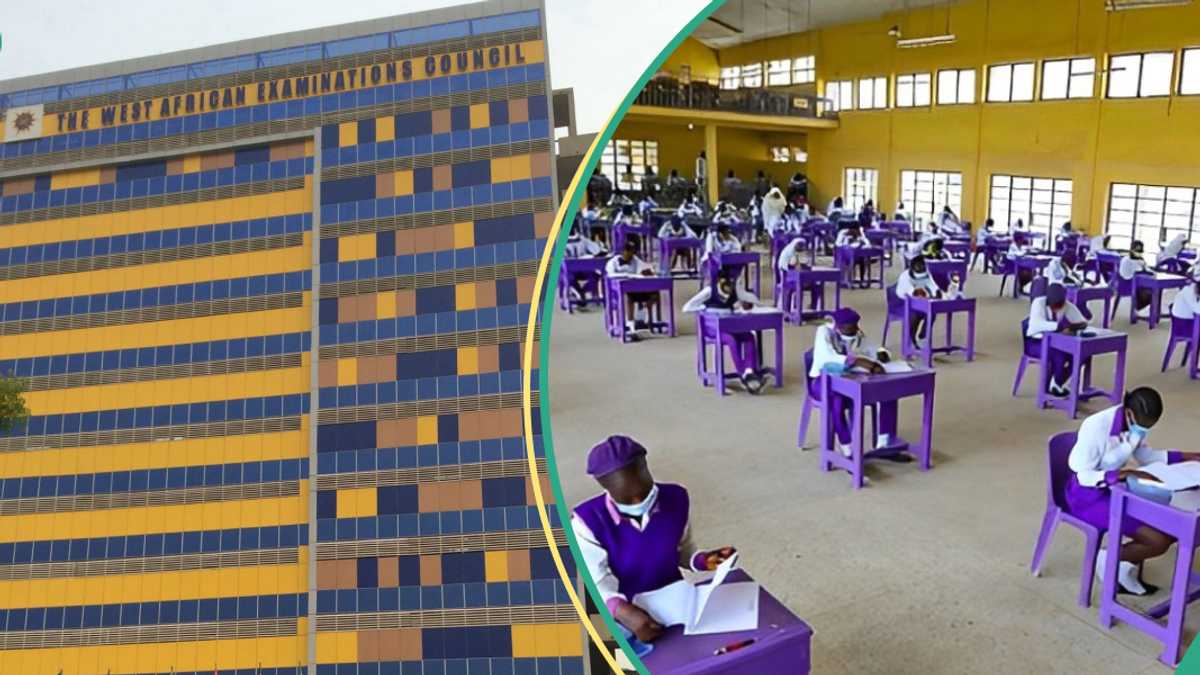Copyright theleader

The organizing committee of the European Forum on Artificial Intelligence has presented its Award for Excellence to Lourdes Agapito, researcher and co-founder of the AI company Synthesia. Imagine writing the script for a presentation you dread, and a program instantly generating a video of an avatar that looks and sounds like you, delivering it with perfect confidence. For many professionals, that would erase hours of anxiety. Thanks to Synthesia’s technology, this scenario is no longer fiction. Synthesia, one of Europe’s leading artificial intelligence unicorns valued at more than €4 billion, allows anyone familiar with PowerPoint to create a lifelike video in minutes. Among its co-founders is Lourdes Agapito, a professor at University College London, who has become one of Europe’s most influential AI researchers. Agapito received the award in Alicante from Ainhoa Moll, Editorial Director of Prensa Ibérica, following an introduction by Nuria Oliver, Director of Ellis Alicante. The award recognizes her pioneering work and the positive social potential of her technology. Synthesia first demonstrated its impact with a viral video in which David Beckham appeared to speak nine languages, urging global action to eliminate malaria. From Curiosity to Creation Agapito’s research began with a fascination for how the human brain interprets images and movement. She sought to reproduce that ability through mathematics—teaching computers to understand and recreate what people see. Her work built on the same principles behind motion capture in film, where actors’ movements are translated into digital characters, as seen in Planet of the Apes. Her breakthrough came when she managed to generate 3D models of a person using only a single video. “This process is called analysis by synthesis,” she explained. “We start with a neutral model of the object and calculate how it should deform so that, when projected, it looks realistic.” The Birth of Synthesia Agapito joined forces with Matthias Niessner, Victor Riparbelli, and Steffen Tjerrild in 2017 to create Synthesia. “We realized we could make videos without cameras, microphones, or actors—and drastically cut production costs,” she recalled at the Alicante Provincial Council Auditorium. “At the time, no one was talking about AI. We were just working with mathematical models.” Their first major project was the Beckham video, where they recorded nine speakers in different languages and transferred their facial movements to Beckham’s face—a milestone that showcased the potential of generative AI for social good. Text-Driven Video and Global Reach Synthesia’s next leap was enabling users to generate videos directly from text by creating lifelike avatars. Today, 70% of Fortune 100 companies use the platform for training, internal communication, and content creation. The company’s appeal lies in its simplicity. “If you can use PowerPoint, you can make a video,” Agapito said. Since 2023, Synthesia’s valuation has climbed from €1 billion to over €4 billion. The company now employs more than 500 people and counts organizations such as the UK’s National Health Service (NHS) and the United Nations among its clients. Agapito also emphasizes Synthesia’s ethical foundations. The platform prohibits creating avatars without consent, monitors content to prevent misuse or misinformation, and contributes to the development of AI regulation. Championing Women in Tech Accepting the award, Agapito called for greater visibility for women in science and entrepreneurship.“It’s important that women entrepreneurs, and especially Spanish women, gain more recognition,” she said. “This is still a male-dominated world, but we’re seeing more women leading in research and business. It’s also vital to show that innovation can be driven by strong ethical principles.”



